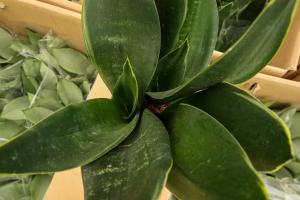Introduction
Tomato plants are a popular vegetable to grow in gardens across the world. They are easy to cultivate and provide an abundance of flavorful fruit. However, one of the biggest challenges that gardeners face is pests that can damage the plants and reduce their yields. In this article, we’ll discuss how to treat bugs on tomato plants and protect your garden’s harvest.
Identifying the Most Common Tomato Plant Bugs
Before we can treat bugs on tomato plants, we need to know which ones are the most common culprits. Here are a few of the most common pests that can afflict tomato plants:
Aphids: These small insects cling to the stems and undersides of leaves and suck plant sap.
Hornworms: These large, green caterpillars can cause significant damage to tomato plants in a short amount of time.
Whiteflies: These tiny flying insects can be found on the undersides of leaves and cause damage by sucking sap and spreading viruses.
Spider mites: These microscopic pests can cause major damage to tomato plants by feeding on their leaves.
Preventing Tomato Plant Bugs
One of the best ways to treat bugs on tomato plants is to prevent them from attacking in the first place. Here are a few tips to help you prevent tomato plant bugs:
Remove all plant debris from the garden bed and surrounding area to reduce the likelihood of pests inhabiting the area.
Plant companion flowers, such as marigolds, which can repel certain pests.
Avoid overwatering your plants, which can attract certain pests.
Use a tomato-specific insecticide spray or dust to protect your plants.
Treating Tomato Plant Bugs
If you discover that your tomato plants are already infected with pests, it’s essential to take action quickly to prevent serious damage. Here are a few ways to treat bugs on tomato plants:
Handpick adult bugs off the plants and dispose of them in soapy water.
Use an insecticidal soap or natural neem oil spray to kill bugs.
Release beneficial insects, such as ladybugs or lacewings, to eat the pests.
Use a rotating selection of natural insecticides to prevent the bugs from becoming immune to any one solution.
The Importance of Timely Treatment
Timely treatment is vital in protecting your tomato plants from serious damage. Be sure to keep a close eye on your plants and watch for any signs of pests or damage. By catching the problem early and taking action, you can prevent the bugs from spreading and save your tomato crop.
Conclusion
Tomato plants are a popular and rewarding vegetable to grow, but they require careful attention to prevent pests from damaging them. By identifying common tomato plant bugs and taking steps to prevent and treat them, you can protect your garden’s harvest and enjoy a successful tomato season.

 how many times do yo...
how many times do yo... how many planted tre...
how many planted tre... how many pine trees ...
how many pine trees ... how many pecan trees...
how many pecan trees... how many plants comp...
how many plants comp... how many plants can ...
how many plants can ... how many plants and ...
how many plants and ... how many pepper plan...
how many pepper plan...
































